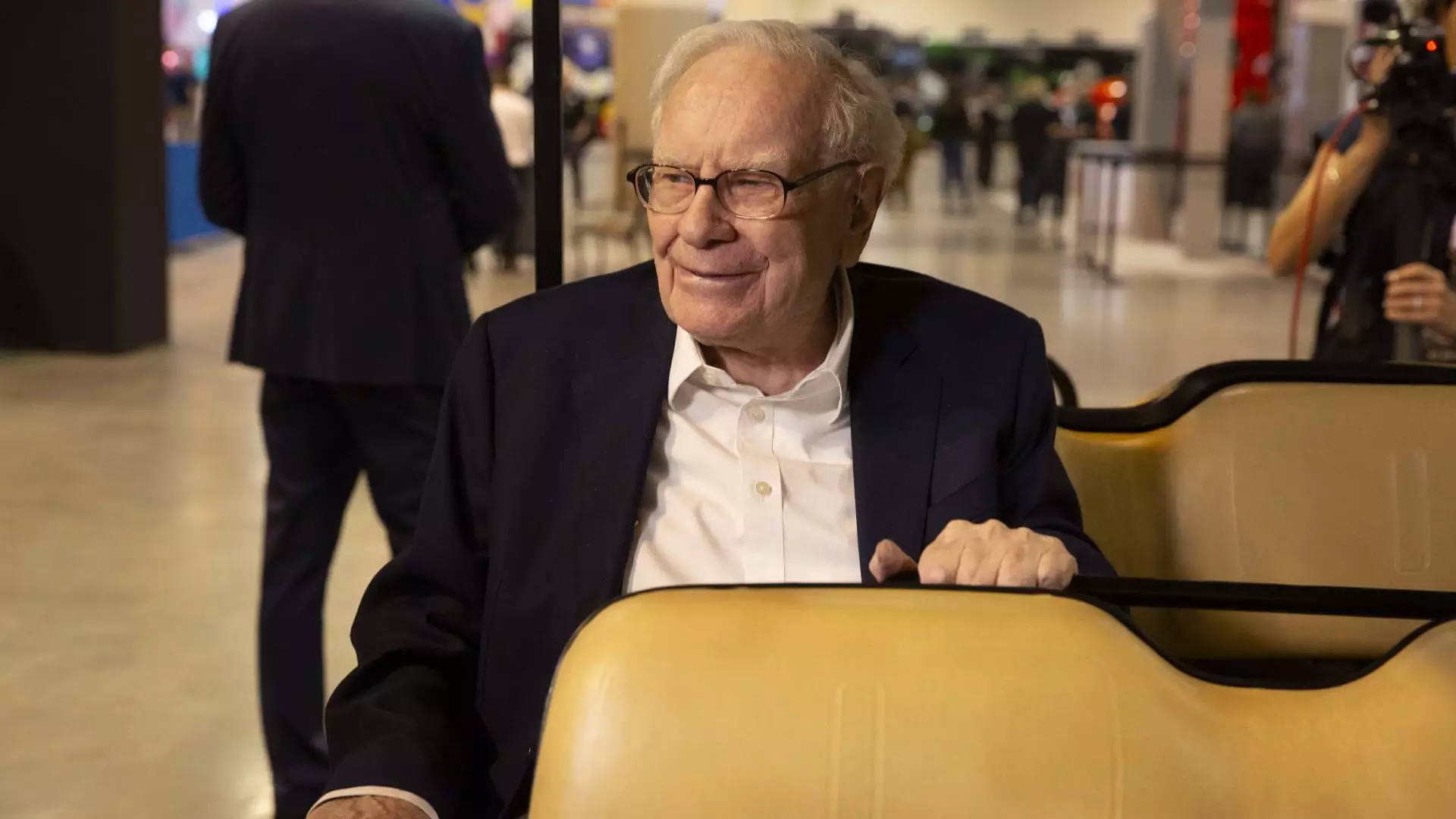Berkshire Hathaway, the conglomerate led by the influential Warren Buffett, recently reported numbers that sparked both excitement and curiosity among its investors. Despite witnessing a remarkable increase in operating earnings, many shareholders were left questioning the corporate strategy regarding its substantial cash reserves. This narrative explores the dynamics of Berkshire’s financial performance and what it indicates about its future direction.
The most striking aspect of Berkshire Hathaway’s recent earnings report was the impressive 71% rise in operating profits, amounting to a staggering $14.5 billion for the fourth quarter. Much of this growth stemmed from insurance underwriting, which surged to $3.4 billion—a 302% increase compared to the same period last year. This outcome exemplifies Berkshire’s strength in its core businesses, which includes well-known subsidiaries like Geico and BNSF Railway.
Nevertheless, while these figures paint a rosy picture of operational success, they come against a background of declining investment gains. The company reported investment returns of only $5.2 billion, a significant drop from the prior year’s $29.1 billion. This dramatic decrease emphasizes an evolving investment landscape where traditional equity returns may not yield the same attractions as they once did.
One of the sneaking anxieties among Berkshire Hathaway shareholders lies in the company’s enormous cash pile, which reportedly reached an unprecedented $334.2 billion—up from $325.2 billion in the preceding quarter. As Buffett himself stated in his annual letter, this large cash reserve might be misconstrued as pessimism regarding stock investments. On the contrary, he affirmed, “The great majority of your money remains in equities.”
So, why the accumulating cash? Buffett hinted at high valuations across financial markets. In an environment where attractive investment opportunities are scarce, the decision to hoard cash instead of rapidly deploying it might be seen as caution or indecision. For investors wanting proactive reinvestment of profits, this can be disheartening.
An additional layer tugging at investor sentiment is the ongoing reduction of Berkshire’s biggest equity positions in Apple and Bank of America. Berkshire has been net selling equities for nine consecutive quarters, leading to a considerable exodus of cash from stock investments. This strategy has incited mixed feelings among analysts and shareholders alike, as some applaud the prudent management style, while others express impatience for more aggressive capital allocation.
Maybe it’s a testament to Buffett’s investment wisdom that he indicated a deliberate approach in managing stock positions amidst high valuations. Nonetheless, the combination of diminished equity purchases alongside a stagnant buyback program could make it difficult for stakeholders to rationalize a strategy expected from one of the wealthiest and most revered investors in the world.
Balancing Act: A Conservative Pursuit of Opportunities
Despite the ongoing criticism related to a conservative financial strategy, some experts urge shareholders to recognize the foresight in positioning themselves to take advantage of future downturns. As Bill Stone, chief investment officer at Glenview Trust Company, articulated, a strong cash position may empower Berkshire to seize lucrative opportunities when market conditions shift favorably. The wisdom in such a tactic becomes apparent when evaluating Berkshire’s ability to weather economic cycles.
Furthermore, the appointment of Greg Abek as Buffett’s successor adds a layer of assurance; Buffett compared Abek to the late Charlie Munger, instilling confidence in his capability to identify valuable investment opportunities when they arise.
Despite Berkshire Hathaway’s recent stock performance eclipsing the broader S&P 500 index—with its value soared by 25.5% in 2024—uncertainty persists regarding the long-term vision for the firm’s equity management strategy. The stock has experienced a nominal increase of over 5% so far in 2025. As market dynamics continue to shift, assessing how Berkshire navigates its massive cash reserves and investment policies will be crucial for stakeholders seeking growth.
While Berkshire Hathaway’s growth in operating earnings is commendable, the lingering questions around its cash pile signal deeper issues in capital allocation that will keep investors on their toes. By striking a balance between conserving resources and making astute investments, the company may well chart a course through the uncertain financial landscapes that undoubtedly lie ahead.

